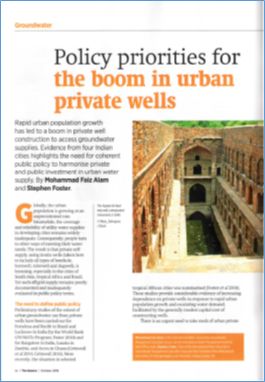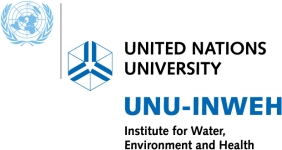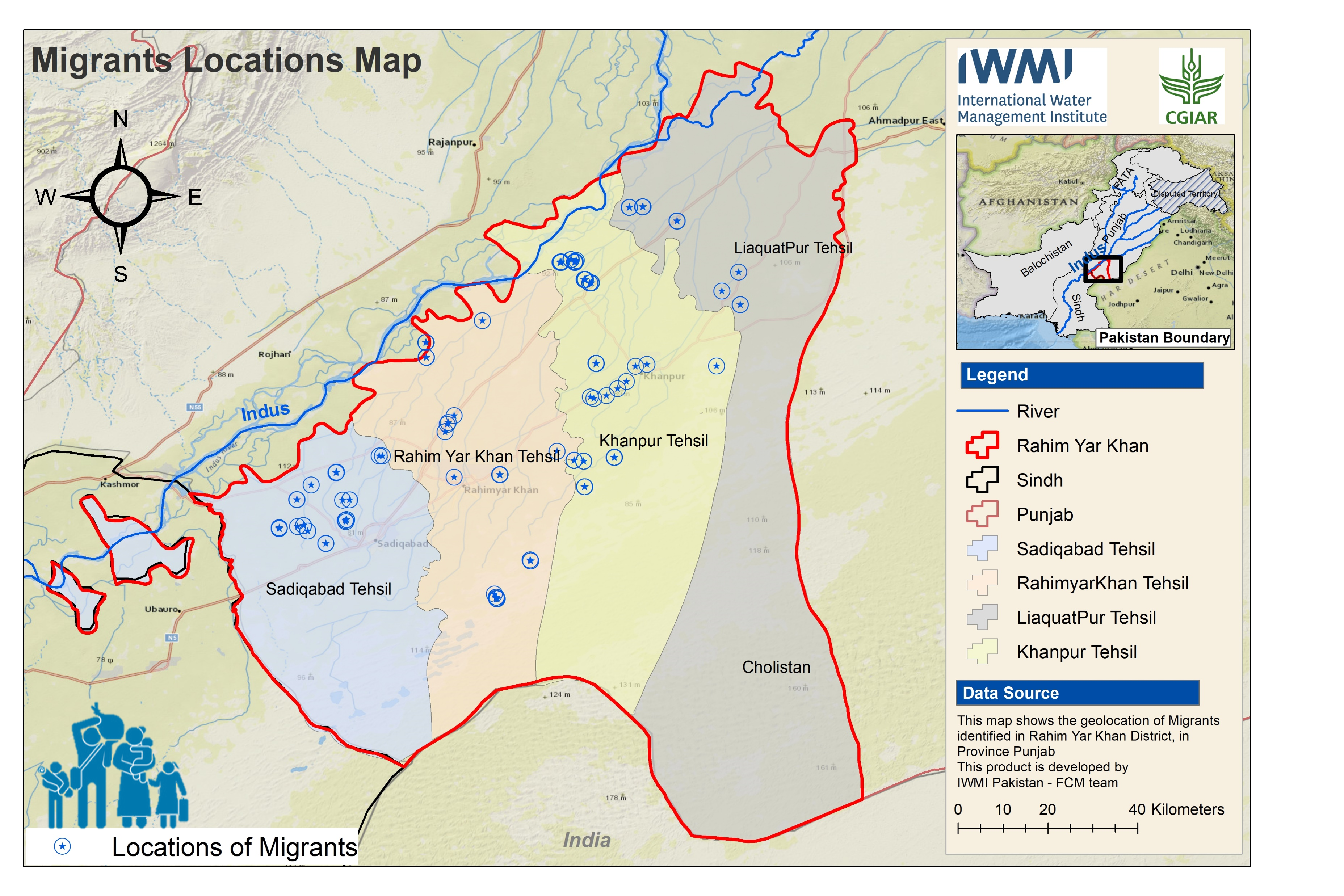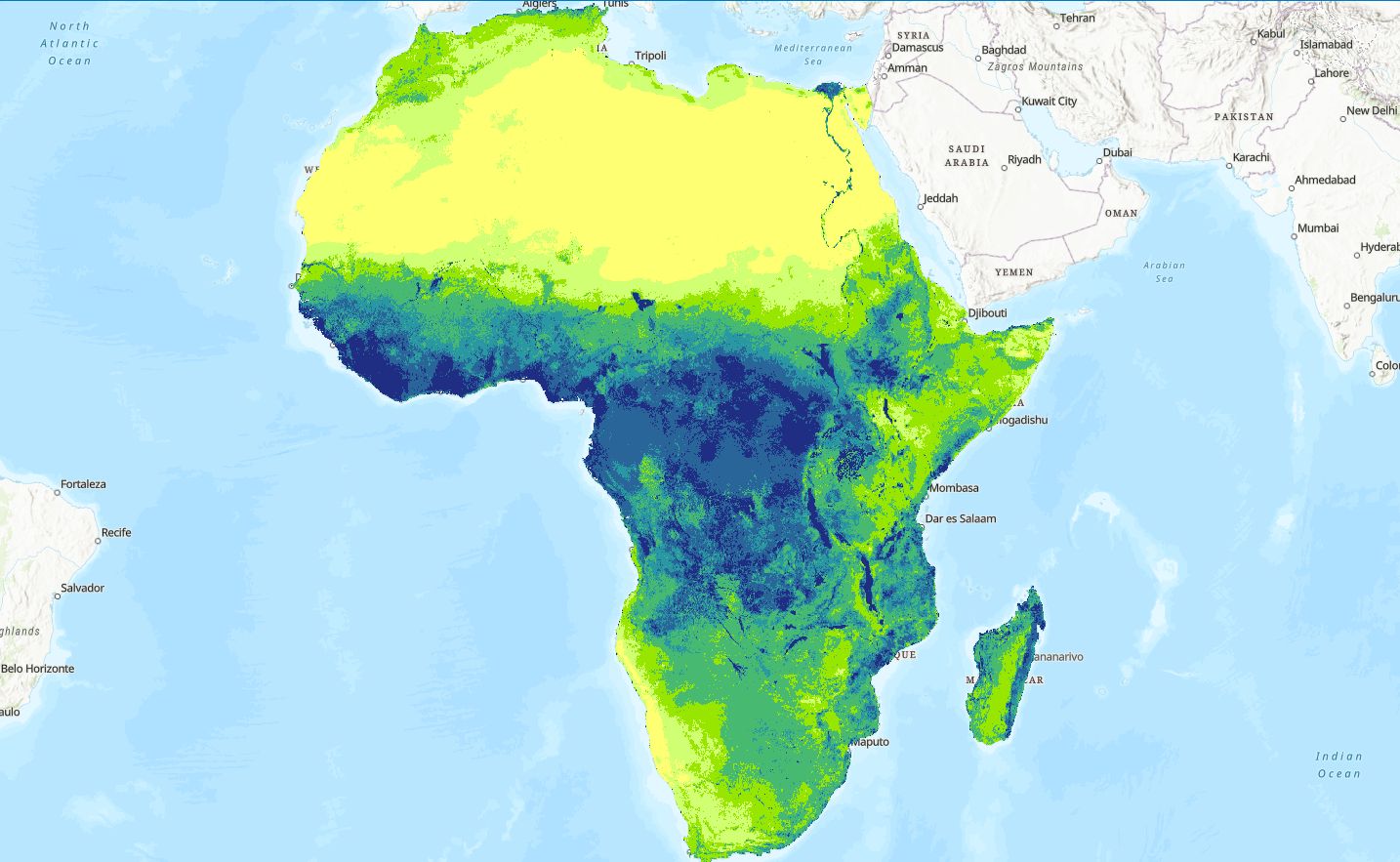The rapid growth in urban population in developing countries along with inadequate coverage and reliability of public utility water supplies has led to a boom in the construction of private wells to gain access to groundwater. Building on previous work, the International Water Association (IWA) Groundwater Management Specialist Group published an article, which includes data and evidence of in-situ self-supply from groundwater in four Indian cities (Aurangabad, Chennai, Indore and New Delhi). Based on this evidence, the authors highlighted the need for coherent public policies to harmonize private and public investment in urban water supply.
This private self-supply from groundwater in developing cities is shown to vary somewhat with urban size and evolution, climatic conditions and hydrogeologic setting, but is often a major component of total urban water supply. Also, this investment in well construction is usually triggered as a coping strategy to confront highly inadequate public water supply services, especially by multi-residential and individual properties, commercial premises and industrial enterprises. The article finds that across the four Indian cities, private self-supply from groundwater ranges between 10% and 60% of total water supply provided, with the lowest for New Delhi and highest for Aurangabad. These numbers vary over time depending on climate conditions and functionality of the public water supplies, including new sources of water, such as groundwater transported from peri-urban or rural areas.
In terms of policies, the authors stress that it is important to use groundwater resources efficiently and sustainably in growing cities, given its key role as a buffer for climate change and its vulnerability to long-term contamination. This requires taking stock of urban private groundwater use, as this is not currently accounted for in urban water supply, reducing utility revenue collection. Since public water supply is partially subsidized and self-supply tends to be dominated by affluent users, the financial viability of utilities come under pressure in supplying water to less-affluent population groups. Deliberating on a more nuanced approach to the integration of self-supply with public water supply could possibly provide some win-win solutions, for example, when (i) self-supply can help to relieve some of the pressure on public water supplies, particularly for non-sensitive uses; (ii) registering, regulating and charging self-supply could provide financial resources to monitor water quality and secure safe supply from self-supply; or (iii) integrating sanitation investments and charges with that of water supply.
Achieving these possible solutions would require improvements in the overall management and protection of groundwater, including monitoring and assessment of private self-supply from groundwater. It would also require the development of new integrated business models, across water supply, sanitation, and monitoring of groundwater and water quality. Furthermore, applied research programs should be commissioned to increase the understanding of key aquifers and hydrogeologic processes. Political and public awareness of the critical role of groundwater should be enhanced and made explicit, in order to develop more sustainable solutions. This article makes a good contribution in this regard by providing significant evidence and background material to emphasize self-supply from groundwater in growing cities across the world.
Click here to read the article.
Citation:
Alam, M.F.; Foster, S. 2019. Policy priorities for the boom in urban private wells. The Source, October 2019, Issue 16, pp. 54-57. International Water Association (IWA) Groundwater Management Specialist Group.
To sign up for GRIPP news and updates, click here.











































